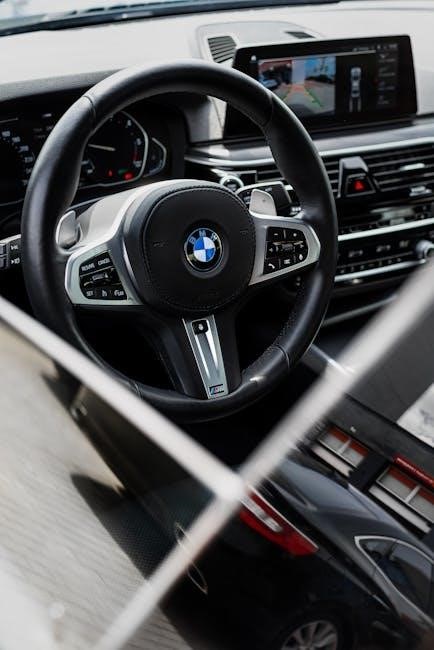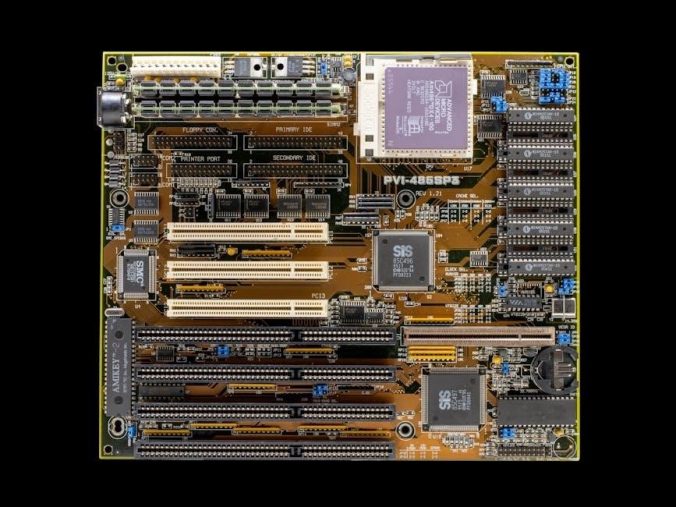This section introduces the fundamentals of electrical motor controls within integrated systems‚ focusing on their role in industrial automation and smart solutions. It highlights the importance of efficient motor control systems in modern applications‚ emphasizing the 5th edition’s comprehensive coverage of advanced techniques and technologies.
The overview discusses how integrated systems enhance performance‚ reliability‚ and energy efficiency in motor operations. It underscores the significance of understanding motor control principles for optimizing industrial processes and ensuring compliance with safety standards.
Overview of Motor Control Systems
Motor control systems are essential for managing and regulating electrical motors in integrated applications. These systems encompass control circuits‚ protection devices‚ and monitoring mechanisms to ensure efficient and safe motor operation. They integrate seamlessly with automation technologies‚ enabling precise speed‚ torque‚ and position control. Modern systems leverage advanced technologies like variable frequency drives and programmable logic controllers to optimize performance. The 5th edition provides in-depth insights into these systems‚ highlighting their role in enhancing industrial processes and energy efficiency while maintaining compliance with safety standards.
Importance of Integrated Systems in Motor Control
Integrated systems in motor control are crucial for optimizing performance‚ efficiency‚ and scalability in industrial applications. They enable seamless communication between motors‚ controllers‚ and other components‚ ensuring precise coordination and real-time monitoring. These systems enhance energy efficiency‚ reduce operational costs‚ and improve reliability. By incorporating advanced technologies‚ integrated systems future-proof motor control solutions‚ making them adaptable to evolving industrial demands. The 5th edition emphasizes their role in achieving smarter‚ more sustainable motor control solutions‚ aligning with global standards for industrial automation and energy conservation.

Key Concepts in Motor Control
Key concepts include understanding motor types‚ control techniques‚ and their integration with advanced technologies. These principles ensure efficient‚ reliable‚ and adaptive motor operations in modern systems.
Types of Electrical Motors
Electrical motors are categorized into DC‚ AC‚ and stepper motors‚ each with unique characteristics. DC motors offer simplicity and precise control‚ while AC motors provide higher power and efficiency. Stepper motors excel in positioning applications. The 5th edition explores these types‚ detailing their integration into advanced control systems for industrial automation and smart solutions‚ ensuring optimal performance and efficiency in various applications.
Motor Control Techniques and Technologies
Modern motor control techniques include variable frequency drives (VFDs)‚ pulse-width modulation (PWM)‚ and vector control‚ enabling precise speed and torque regulation. These technologies optimize energy efficiency and performance in integrated systems. The 5th edition highlights advancements in motor control‚ such as field-oriented control and sensorless technologies‚ which enhance operational reliability and adaptability in industrial and smart applications.
Real-time monitoring and data analytics further improve system performance‚ ensuring seamless integration with automation systems. These innovations are central to the 5th edition’s focus on advancing motor control in integrated systems.
5th Edition Overview
The 5th edition provides a comprehensive update on electrical motor controls‚ offering enhanced insights into integrated systems‚ advanced technologies‚ and practical applications. It serves as a vital resource for professionals and students‚ ensuring up-to-date knowledge in the field of motor control systems.
What’s New in the 5th Edition?
The 5th edition introduces updated chapters on integrated motor control systems‚ featuring enhanced coverage of smart technologies and energy-efficient designs. New sections delve into advanced automation techniques‚ while revised content emphasizes compliance with international standards. The edition also incorporates real-world case studies and practical examples‚ providing deeper insights into system implementation. Additionally‚ improved diagrams and illustrations aid in understanding complex motor control concepts. This edition is a must-have for professionals seeking to stay current with industry advancements and best practices in motor control systems.
Enhanced Features for Integrated Systems
The 5th edition highlights enhanced features for integrated motor control systems‚ including advanced automation and smart technologies. It emphasizes real-time monitoring and data analytics for improved efficiency. New chapters focus on energy-efficient designs and their impact on system performance. The edition also explores modular and scalable solutions‚ enabling seamless integration with industrial applications. Additionally‚ it provides updated tools for diagnosing and troubleshooting motor control issues‚ ensuring optimal system reliability and compliance with modern safety standards. These enhancements make it a valuable resource for professionals working with integrated motor systems.

Applications in Integrated Systems
The 5th edition examines applications of motor controls in industrial automation‚ smart technologies‚ and energy-efficient systems‚ offering insights for enhanced performance and reliability in integrated solutions.
Industrial Automation and Motor Control
Industrial automation relies heavily on motor control systems to optimize production processes‚ ensuring precision and efficiency. The 5th edition explores how advanced motor control technologies integrate with automation systems‚ enabling real-time monitoring and control of industrial machinery. It discusses the role of sensors‚ programmable logic controllers (PLCs)‚ and variable frequency drives (VFDs) in achieving seamless operation. The text highlights how these systems reduce downtime‚ improve product quality‚ and enhance overall plant performance‚ making them indispensable in modern manufacturing environments.
Smart Motor Control Solutions
Smart motor control solutions integrate advanced technologies like IoT connectivity and AI to optimize motor performance in integrated systems. These solutions enable real-time monitoring‚ remote control‚ and predictive maintenance‚ enhancing efficiency and reducing operational costs. The 5th edition explores how smart motor controls adapt to dynamic loads‚ minimize energy consumption‚ and ensure seamless communication within industrial networks. By leveraging data analytics‚ these systems provide actionable insights‚ ensuring optimal performance and reliability in modern industrial applications.

Design Considerations
Designing motor control systems requires careful consideration of efficiency‚ safety‚ and compatibility. Proper component selection and system integration ensure optimal performance and adherence to international standards.
Best Practices for Motor Control Design
Implementing best practices in motor control design ensures reliability and efficiency. Start with a clear understanding of load requirements and system objectives. Select components that align with the application‚ considering factors like power ratings and compatibility. Use advanced control techniques such as variable frequency drives for precise motor operation. Ensure proper wiring and grounding to minimize interference. Regular maintenance and testing are crucial for sustained performance. Adhere to industry standards to ensure safety and compliance.
Challenges in Implementing Integrated Systems
Integrating motor control systems presents several challenges‚ including compatibility issues between components and the need for advanced programming skills. Ensuring seamless communication across diverse protocols can be complex. Additionally‚ system security and data protection are critical concerns. High initial costs and the requirement for specialized expertise can hinder implementation. Regular updates and maintenance are necessary to keep systems optimized and secure. Addressing these challenges requires thorough planning and collaboration among engineers‚ designers‚ and technicians to ensure smooth operation and maximize system efficiency.
Future Trends in Motor Control
Emerging technologies like IoT‚ AI‚ and smart motor controls are driving innovation‚ enabling enhanced efficiency‚ and promoting sustainable energy use in integrated systems.
Emerging Technologies in Motor Control
Emerging technologies in motor control include advanced IoT integration‚ AI-driven predictive maintenance‚ and smart sensors. These innovations enhance efficiency‚ reduce downtime‚ and optimize energy consumption. The 5th edition highlights how these technologies integrate seamlessly into modern motor systems‚ enabling real-time monitoring and adaptive control strategies. Such advancements are pivotal for industries seeking sustainable and high-performance motor solutions.
Sustainability and Energy Efficiency in Motor Systems
Sustainability and energy efficiency are critical in modern motor systems‚ driving reduced power consumption and environmental impact. The 5th edition emphasizes advanced technologies like high-efficiency motors (IE3‚ IE4) and smart control systems. These innovations optimize performance‚ lower operational costs‚ and align with global sustainability goals. Integrating renewable energy sources and energy recovery systems further enhances eco-friendly motor operations‚ ensuring long-term environmental and economic benefits for industries worldwide.

Safety and Standards
The 5th edition emphasizes compliance with international safety standards for motor control systems‚ ensuring reliable and secure operations across integrated applications. It highlights essential safety protocols.
Safety Protocols for Motor Control Systems
Safety protocols are critical in motor control systems to prevent accidents and ensure reliable operation. These protocols include emergency stop mechanisms‚ thermal monitoring‚ and surge protection to safeguard equipment and personnel.
Compliance with international standards like IEC and NFPA is essential. Proper installation‚ maintenance‚ and regular testing of control systems are emphasized to minimize risks and ensure adherence to safety guidelines.
Compliance with International Standards
Compliance with international standards ensures motor control systems meet safety‚ reliability‚ and performance requirements. These standards‚ such as IEC 61508 for functional safety and NFPA 70 for electrical installations‚ guide design and implementation.
Adhering to these standards minimizes risks‚ ensures compatibility‚ and facilitates global market access. Regular updates in the 5th edition reflect evolving standards‚ helping professionals stay informed and compliant with the latest regulations.
Resources and Access
Access the 5th edition PDF through official channels or authorized vendors; Explore additional resources‚ including tutorials and guides‚ to deepen your understanding of motor control systems.
Visit the official publisher website or verified platforms for secure downloads and updates.
Accessing the 5th Edition PDF
To access the 5th edition PDF of Electrical Motor Controls for Integrated Systems‚ visit the official publisher website or authorized vendors. Ensure you purchase from verified sources to avoid unauthorized versions. The PDF provides comprehensive insights into motor control technologies and integrated systems‚ offering detailed guidance for engineers and technicians. Secure your copy today for enhanced learning and application in industrial automation and smart motor solutions.
Additional Resources for Motor Control Learning
Beyond the 5th edition PDF‚ explore online tutorials‚ workshops‚ and forums for deeper insights into motor control systems. Manufacturers like Omron and Siemens offer detailed guides and case studies. Join professional networks and subscribe to industry journals for updates on emerging technologies. Utilize simulation software for hands-on practice with integrated systems. These resources provide practical knowledge and real-world applications‚ enhancing your understanding of electrical motor controls and their implementation in modern industrial settings.

Leave a Reply
You must be logged in to post a comment.